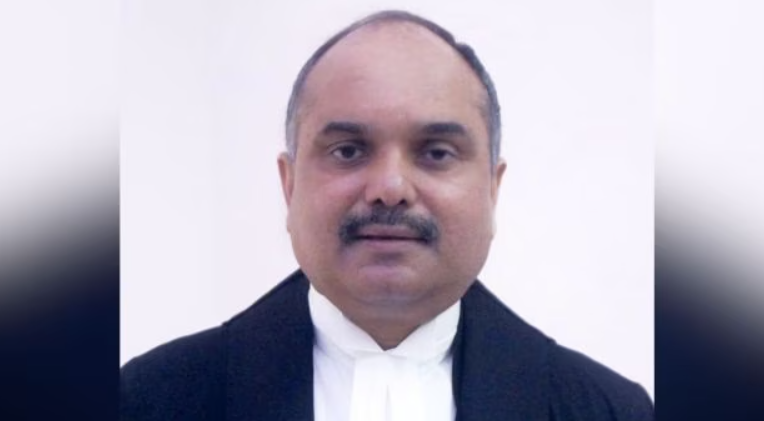The Delhi High Court will see its strength coming down to 36 judges from 36 after the transfer of Justice Chandra Dhari Singh.
Delhi High Court Bar Association president and senior advocate N Hariharan Tuesday said the transfer of Justice Chandra Dhari Singh to the Allahabad High Court comes at “trying times” for the Delhi High Court and the moment calls for “deep introspection”.
With the transfers of Justice Yashwant Varma, who has been in the eye of a storm ever since cash was allegedly found at his New Delhi home during a fire on March 14 and has had judicial work withdrawn, to the Allahabad High Court and Justice Dinesh Sharma to the Calcutta High Court, the Delhi High Court will see its strength coming down to 36 judges from 36.
Hariharan was speaking at the full court farewell organised for Justice Singh, who marked his last day at the high court following the Centre confirming his repatriation on March 28. The clearance from the Centre came four months after the Supreme Court Collegium headed by Chief Justice of India Sanjiv Khanna recommended repatriation in the Collegium meeting held on November 28 and 29, 2024.
Addressing the full court at the farewell event, Hariharan said Justice Singh’s transfer “presents an opportunity and obligation for both the Bar and the Bench to reflect” on their collective responsibilities.
“Justice Singh, your departure comes at what can only be described as trying times for our institution. With your transfer back to the Allahabad High Court and the proposed transfer of two other judges, our court faces not merely a reduction in numerical strength but a moment that calls for a deep introspection,” Hariaharan said.
He added, “We find ourselves in an era where there is perceptible erosion of public faith in the legal system as a whole. The judiciary once viewed with unquestioning reverence, now faces scrutiny, scepticism and sometimes outright cynicism from the very public it seeks to serve.”
“Similarly, we at the Bar increasingly find ourselves characterised as self-serving, callous, and mechanical, more concerned with technicalities and fees than with justice and the human lives affected by our work. This dual crisis of confidence is a reality we must acknowledge with humility and grave concern. Your transfer alongside others presents an opportunity and obligation for both the Bar and the Bench to reflect on our collective responsibilities. This moment calls upon us to work together with renewed vigour to protect the integrity, reputation and public faith in our legal profession. For the bench it is a reminder of the profound impact each judge has on the perception of justice,” he said.
Meanwhile, Justice Singh, at his farewell, said, “Judging is not a mechanical task, it demands empathy and wisdom. Indeed a judge must sometimes harden his heart to do justice, but he must never become indifferent. Balancing head and heart is the art of judging. I believe in being open to change, in thinking and understanding new social realities, so long as we remain moored to constitutional values.”
Hailing from Sultanpur in Uttar Pradesh and a first-generation lawyer, Singh was appointed as additional advocate general for the state of Chhattisgarh and was standing counsel for the state of Madhya Pradesh, Uttar Pradesh and Jharkhand, and also served as a senior panel counsel for Union of India, until his elevation as an additional judge at the Allahabad High Court in 2017. He was made a permanent judge in 2019 and was transferred to the Delhi High Court on October 11, 2021. While he was appointed as a judge at the Allahabad High Court, he also subsequently served as a judge at the Lucknow bench of the Allahabad High Court, when Delhi High Court Chief Justice D K Upadhyaya was also part of the Lucknow bench of the court.
Reminiscing about their past connection, Chief Justice Upadhyaya said during the full court farewell event, “We have shared the atmosphere there, the lunch room there, so of course we have very fond memories of each other.”
“Justice Singh is known as a hardworking and relief-giving judge, as was shared during the Bar function, he is a people’s judge. During his tenure in this court, Justice Singh efficiently handled cases belonging to diverse subject matters, including criminal, civil, service and labour laws, and arbitration. His understanding of society and social dynamics has made him a fine judge… He contributed immensely in both judicial and administrative capacities,” Chief Justice Upadhyaya said.
Justice Singh, in December 2024, refused to grant pre-arrest bail to former IAS trainee Puja Khedkar, accused of fraudulently clearing the UPSC exam, noting that her case “is a classic example of fraud committed not only with a constitutional body but the society at large”.
The same month, he also refused to quash an FIR against a Hindu College faculty member booked for allegedly hurting religious sentiments. Justice Singh had recorded that “an intellectual person is instrumental in guiding others and the society at large and thus, he should be more conscious while giving such type of statements in a public domain”.
Recently, Justice Singh held that qualified wives, having earning capacity “ought not to remain idle solely to gain maintenance from her husband”.

